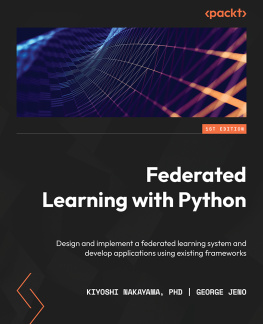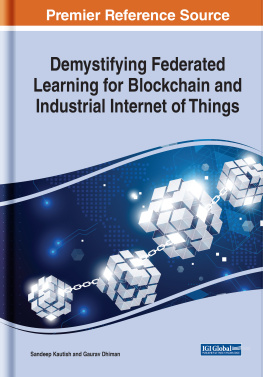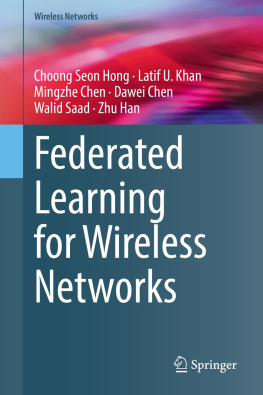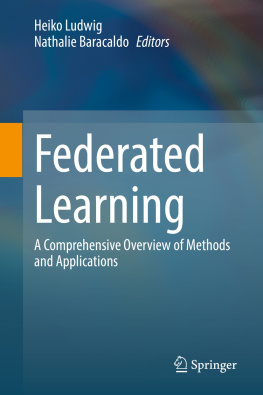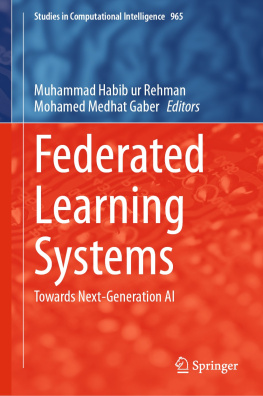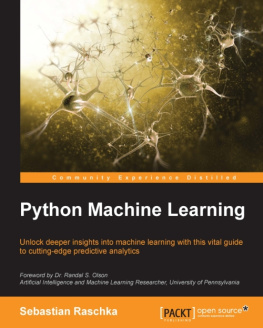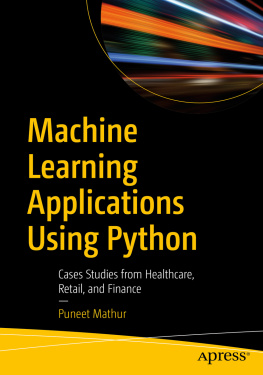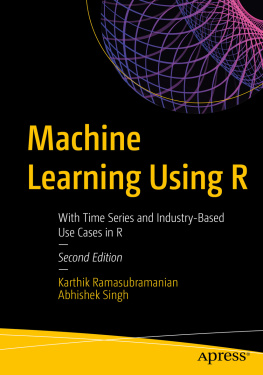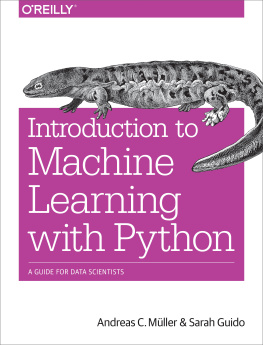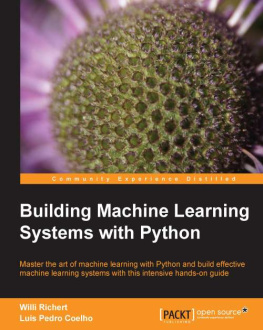Kiyoshi Nakayama PhD - Federated Learning with Python: Design and implement a federated learning system and develop applications using existing frameworks
Here you can read online Kiyoshi Nakayama PhD - Federated Learning with Python: Design and implement a federated learning system and develop applications using existing frameworks full text of the book (entire story) in english for free. Download pdf and epub, get meaning, cover and reviews about this ebook. year: 2022, publisher: Packt Publishing, genre: Politics. Description of the work, (preface) as well as reviews are available. Best literature library LitArk.com created for fans of good reading and offers a wide selection of genres:
Romance novel
Science fiction
Adventure
Detective
Science
History
Home and family
Prose
Art
Politics
Computer
Non-fiction
Religion
Business
Children
Humor
Choose a favorite category and find really read worthwhile books. Enjoy immersion in the world of imagination, feel the emotions of the characters or learn something new for yourself, make an fascinating discovery.
- Book:Federated Learning with Python: Design and implement a federated learning system and develop applications using existing frameworks
- Author:
- Publisher:Packt Publishing
- Genre:
- Year:2022
- Rating:3 / 5
- Favourites:Add to favourites
- Your mark:
Federated Learning with Python: Design and implement a federated learning system and develop applications using existing frameworks: summary, description and annotation
We offer to read an annotation, description, summary or preface (depends on what the author of the book "Federated Learning with Python: Design and implement a federated learning system and develop applications using existing frameworks" wrote himself). If you haven't found the necessary information about the book — write in the comments, we will try to find it.
Learn the essential skills for building an authentic federated learning system with Python and take your machine learning applications to the next level
Key Features- Design distributed systems that can be applied to real-world federated learning applications at scale
- Discover multiple aggregation schemes applicable to various ML settings and applications
- Develop a federated learning system that can be tested in distributed machine learning settings
Federated learning (FL) is a paradigm-shifting technology in AI that enables and accelerates machine learning (ML), allowing you to work on private data. It has become a must-have solution for most enterprise industries, making it a critical part of your learning journey. This book helps you get to grips with the building blocks of FL and how the systems work and interact with each other using solid coding examples.
FL is more than just aggregating collected ML models and bringing them back to the distributed agents. This book teaches you about all the essential basics of FL and shows you how to design distributed systems and learning mechanisms carefully so as to synchronize the dispersed learning processes and synthesize the locally trained ML models in a consistent manner. This way, youll be able to create a sustainable and resilient FL system that can constantly function in real-world operations. This book goes further than simply outlining FLs conceptual framework or theory, as is the case with the majority of research-related literature.
By the end of this book, youll have an in-depth understanding of the FL system design and implementation basics and be able to create an FL system and applications that can be deployed to various local and cloud environments.
What you will learn- Discover the challenges related to centralized big data ML that we currently face along with their solutions
- Understand the theoretical and conceptual basics of FL
- Acquire design and architecting skills to build an FL system
- Explore the actual implementation of FL servers and clients
- Find out how to integrate FL into your own ML application
- Understand various aggregation mechanisms for diverse ML scenarios
- Discover popular use cases and future trends in FL
This book is for machine learning engineers, data scientists, and artificial intelligence (AI) enthusiasts who want to learn about creating machine learning applications empowered by federated learning. Youll need basic knowledge of Python programming and machine learning concepts to get started with this book.
Table of Contents- Challenges in Big Data and Traditional AI
- What Is Federated Learning?
- Workings of the Federated Learning System
- Federated Learning Server Implementation with Python
- Federated Learning Client-Side Implementation
- Running the Federated Learning System and Analyzing the Results
- Model Aggregation
- Introducing Existing Federated Learning Frameworks
- Case Studies with Key Use Cases of Federated Learning Applications
- Future Trends and Developments
- Appendix, Exploring Internal Libraries
Kiyoshi Nakayama PhD: author's other books
Who wrote Federated Learning with Python: Design and implement a federated learning system and develop applications using existing frameworks? Find out the surname, the name of the author of the book and a list of all author's works by series.

